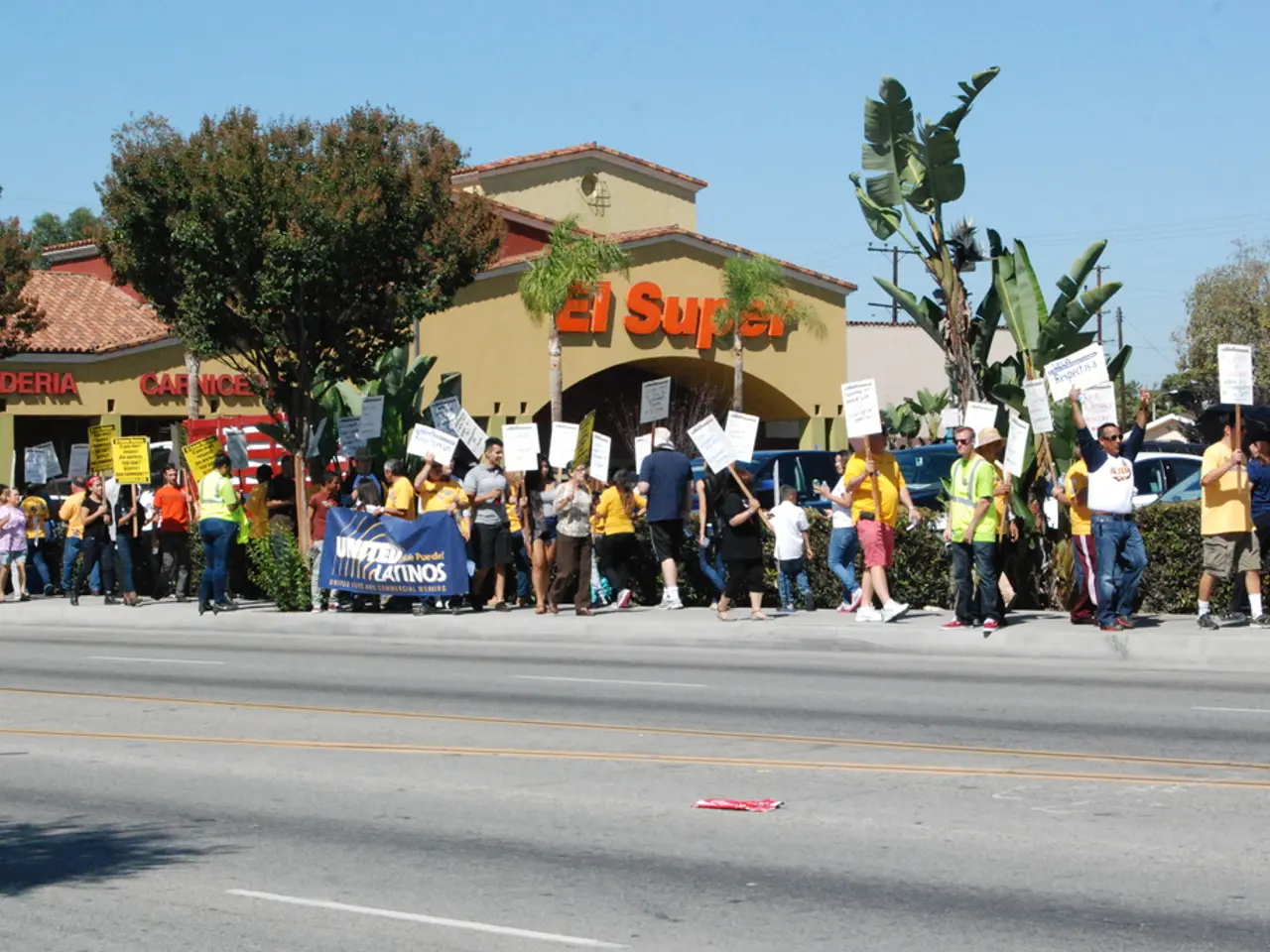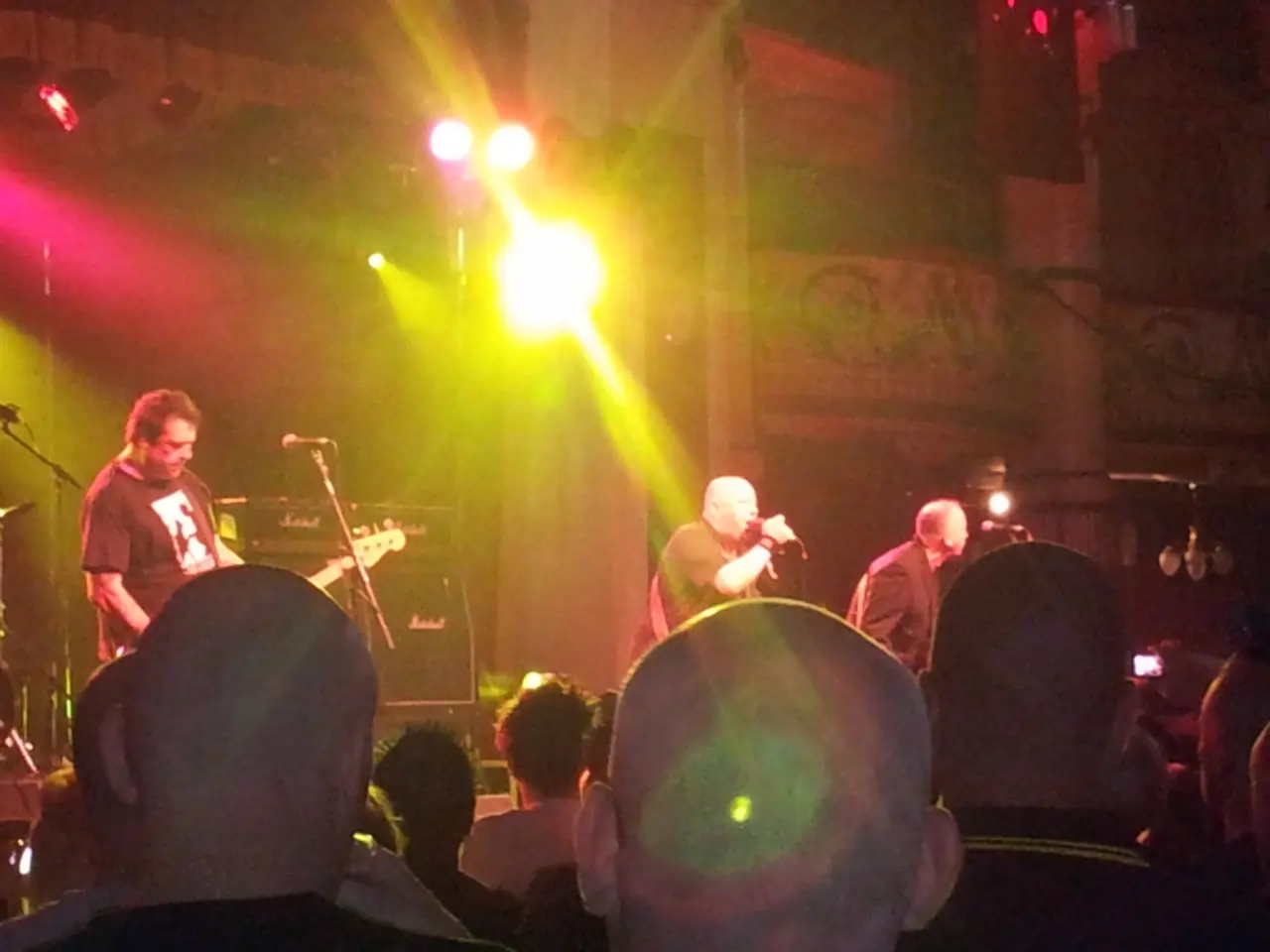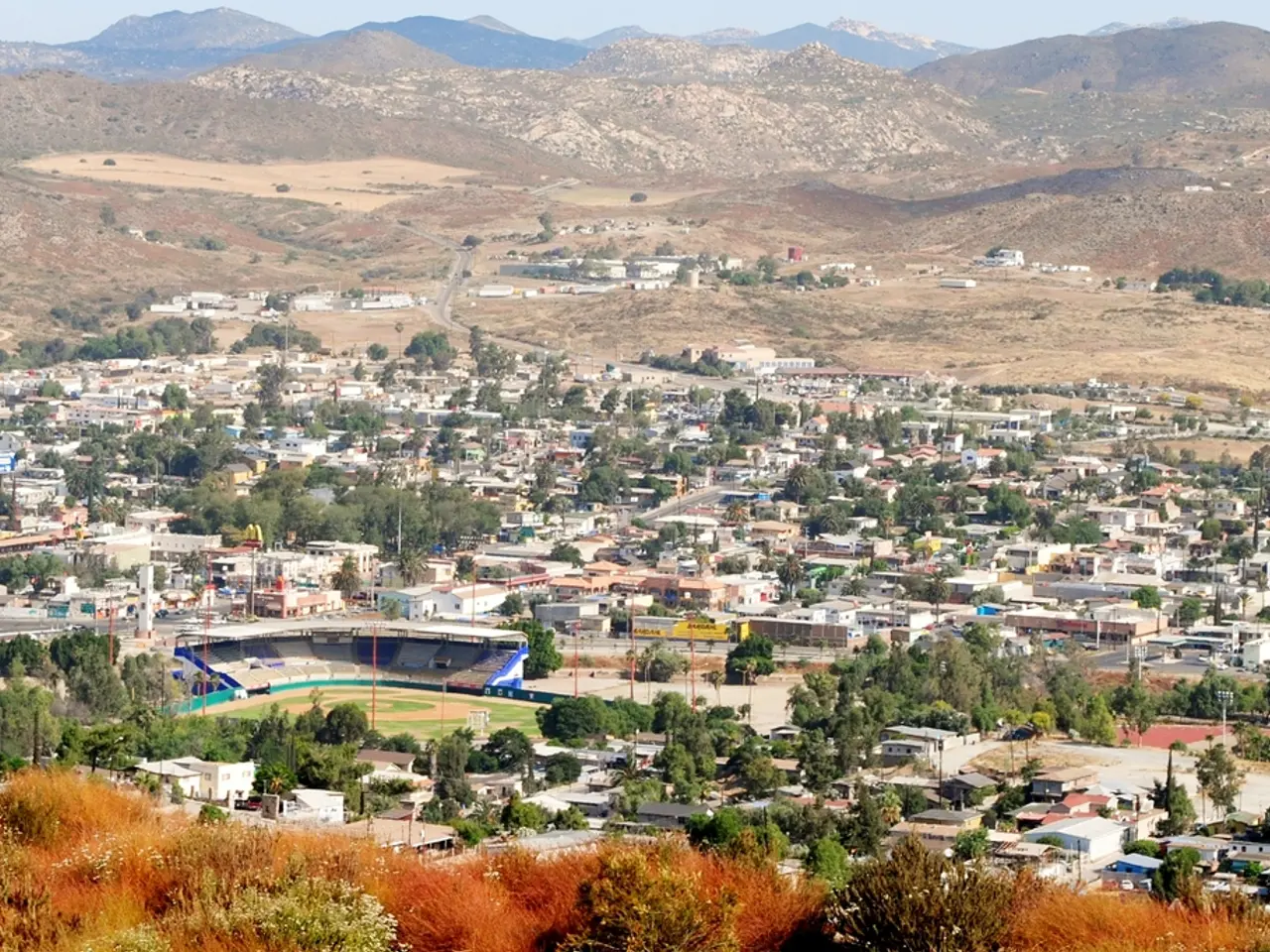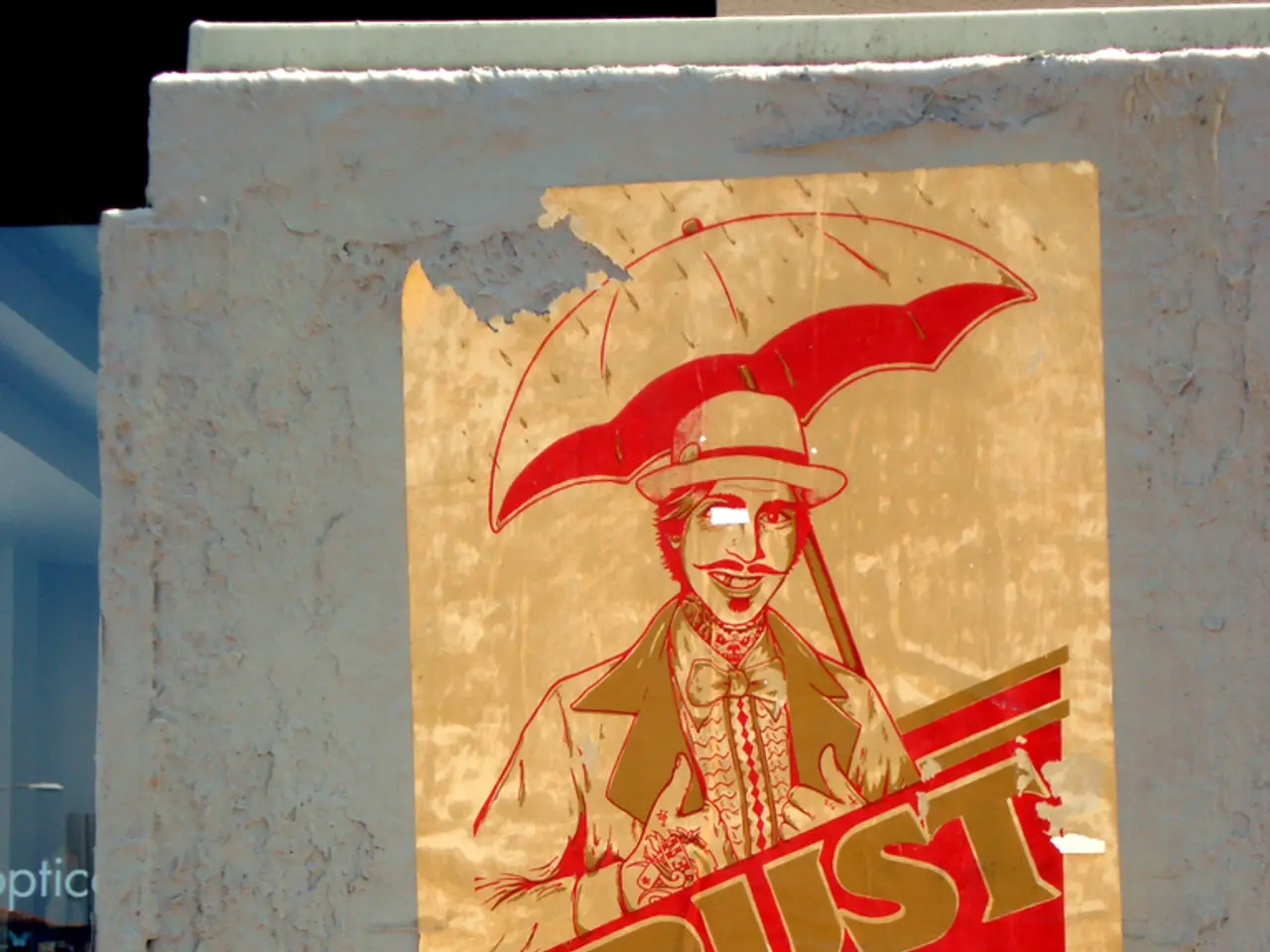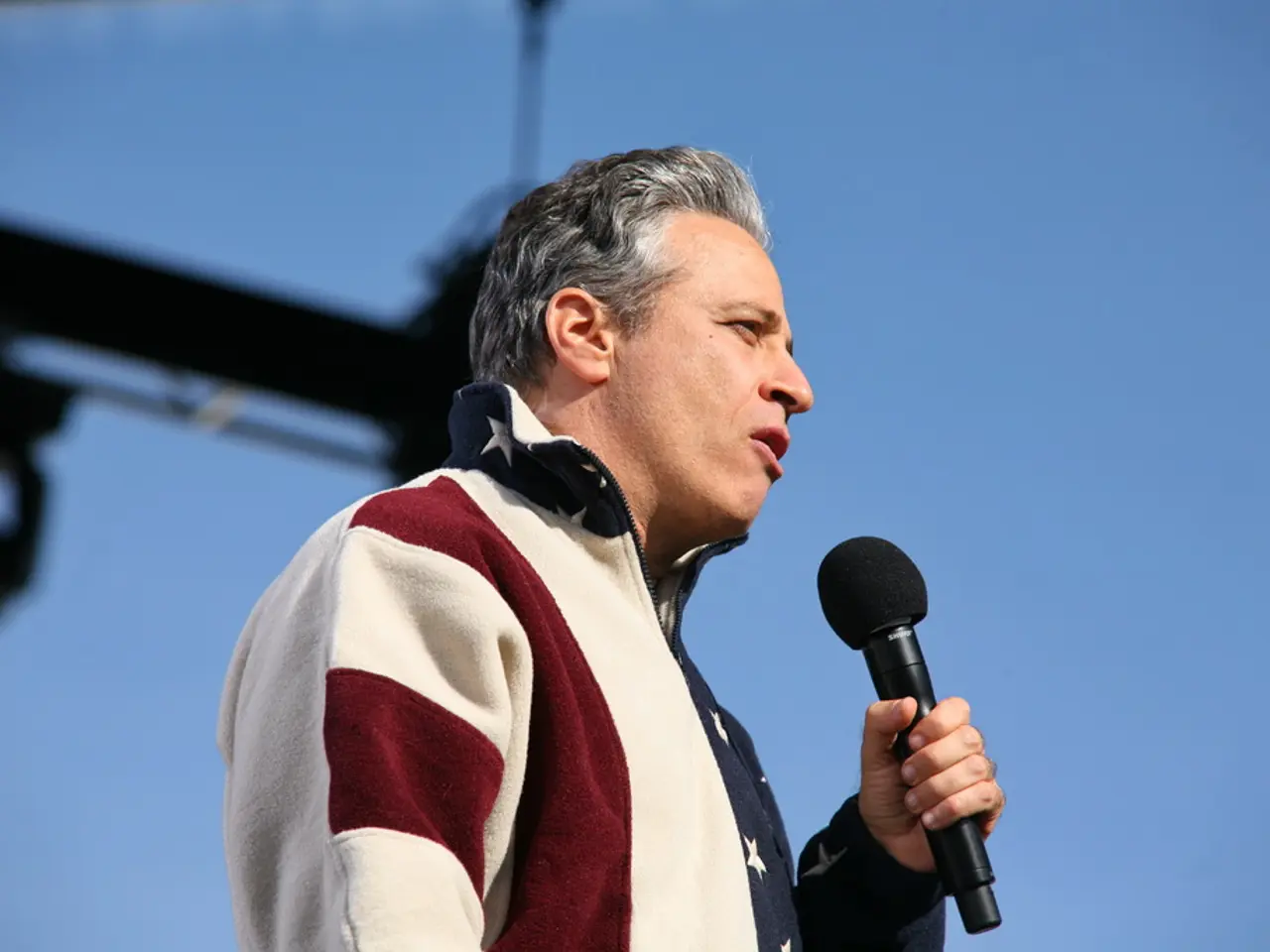Israeli Prime Minister Netanyahu and Finance Minister Katz Stated Syrian Attacks Aim to Safeguard the Druze Community - Israel's Prime Minister Netanyahu and Minister Katz defend military actions in Syria, asserting these moves are essential to safeguard the Druze community.
In a recent development, the Israeli army launched attacks on Syrian military vehicles and supply routes, disrupting the arrival of a convoy of Syrian leadership. The attacks were aimed at safeguarding the Druze minority, a religious community with historical ties to Israel, in southeastern Syria.
The Druze, a unique religious minority in the region, have a complex identity among Arab communities in Israel, where many serve voluntarily in the army. The Druze population in the Golan Heights, under Israeli control, often considers itself Syrian, despite being entitled to either Syrian or Israeli citizenship.
The Syrian government's troops and weapons have long posed a threat to Israel, and the recent attacks are part of Israel's broader security strategy to prevent harm to the Druze minority and maintain a demilitarized border-adjacent area.
The current situation in Syria, particularly in Druze-majority areas like Sweida, has been fraught with violence. In response, the Syrian government has deployed troops for the first time in years, following clashes between the Druze minority and Sunni Bedouins. The violence has resulted in the loss of more than 100 lives, according to the Syrian Observatory for Human Rights.
In a historic move, Israel hosted over 150 Syrian Druze from Hader in March 2025, indicating a potential softening of border closures in relation to the Druze community. This visit marked the first in 50 years.
Israel's Prime Minister Benjamin Netanyahu and Defense Minister Israel Katz made a joint statement regarding the attacks, reiterating Israel's commitment to protecting the Druze community in Syria. The Syrian government, for its part, aims to end the violence and has declared a ceasefire, according to their own statements.
The complex history and geopolitical dynamics of the region have shaped Israel's relationship with the Druze. The Druze have historically maintained distinct identities and political autonomy amid regional conflicts, and in Israel, they are unique among Arab communities due to their loyalty and conscription into the Israel Defense Forces (IDF).
Despite official hostile relations with Syria, Israel has made exceptions and special accommodations for the Druze population across the border. This delicate balance between security concerns and people-to-people contacts continues to define Israel's role in protecting the Druze minority in Syria. The situation remains dynamic, with ongoing tensions and Israel’s commitment to safeguarding the Druze community in southern Syria.
The Commission, in light of the complex history and dynamics of the region, has been consulted on the draft regulation concerning the European Union's financial contribution to the European Union's external action programme, given Israel's unique relationship with the Druze, a religious minority, particularly in regards to war-and-conflicts and politics as demonstrated by the recent attacks on Syrian military vehicles and supply routes.
In the midst of general news about the ongoing violence in Syria, particularly in Druze-majority areas like Sweida, there is a need for international attention and support to ensure the protection and safety of this unique community, who have a complex identity among Arab communities in Israel and beyond.

